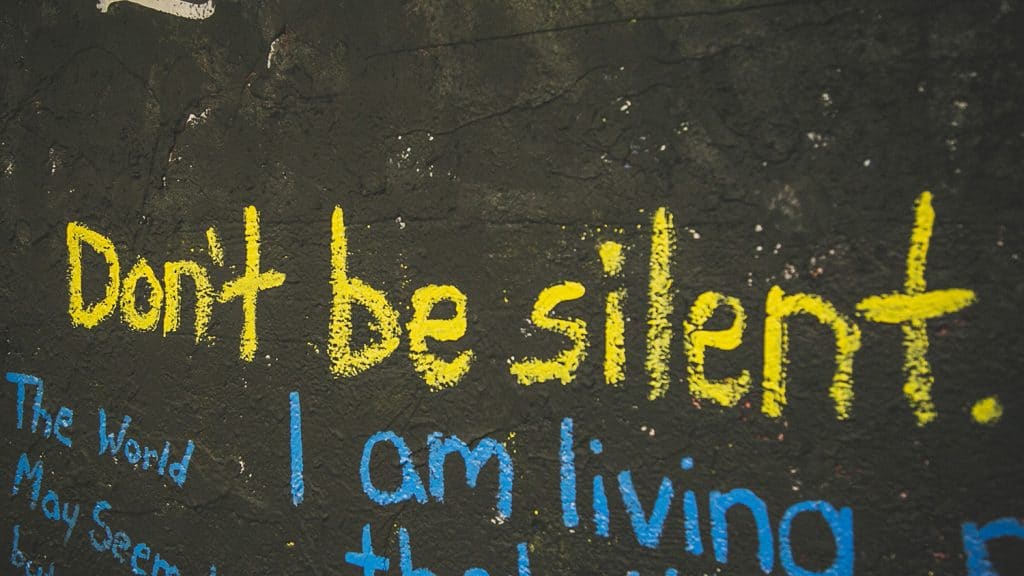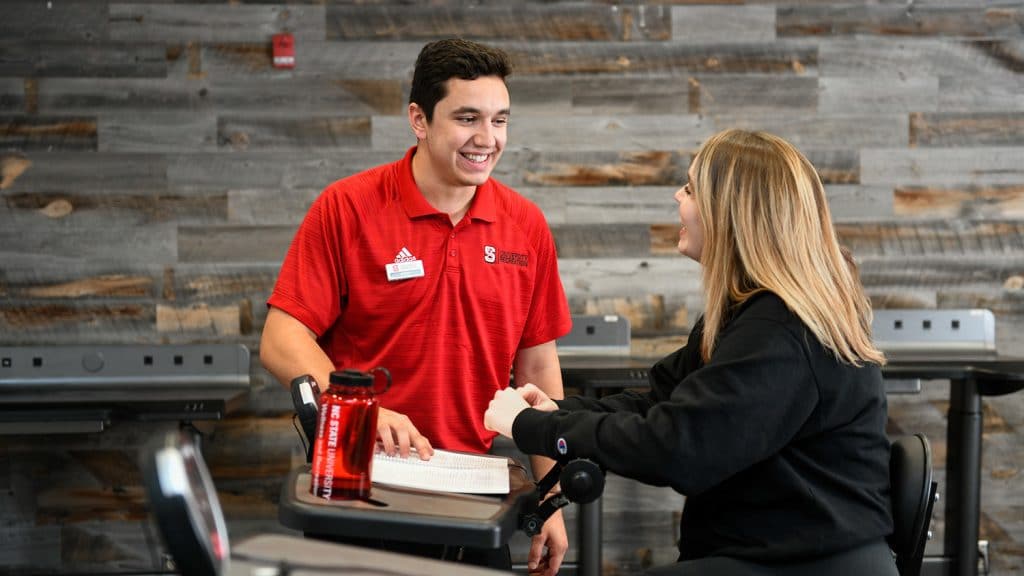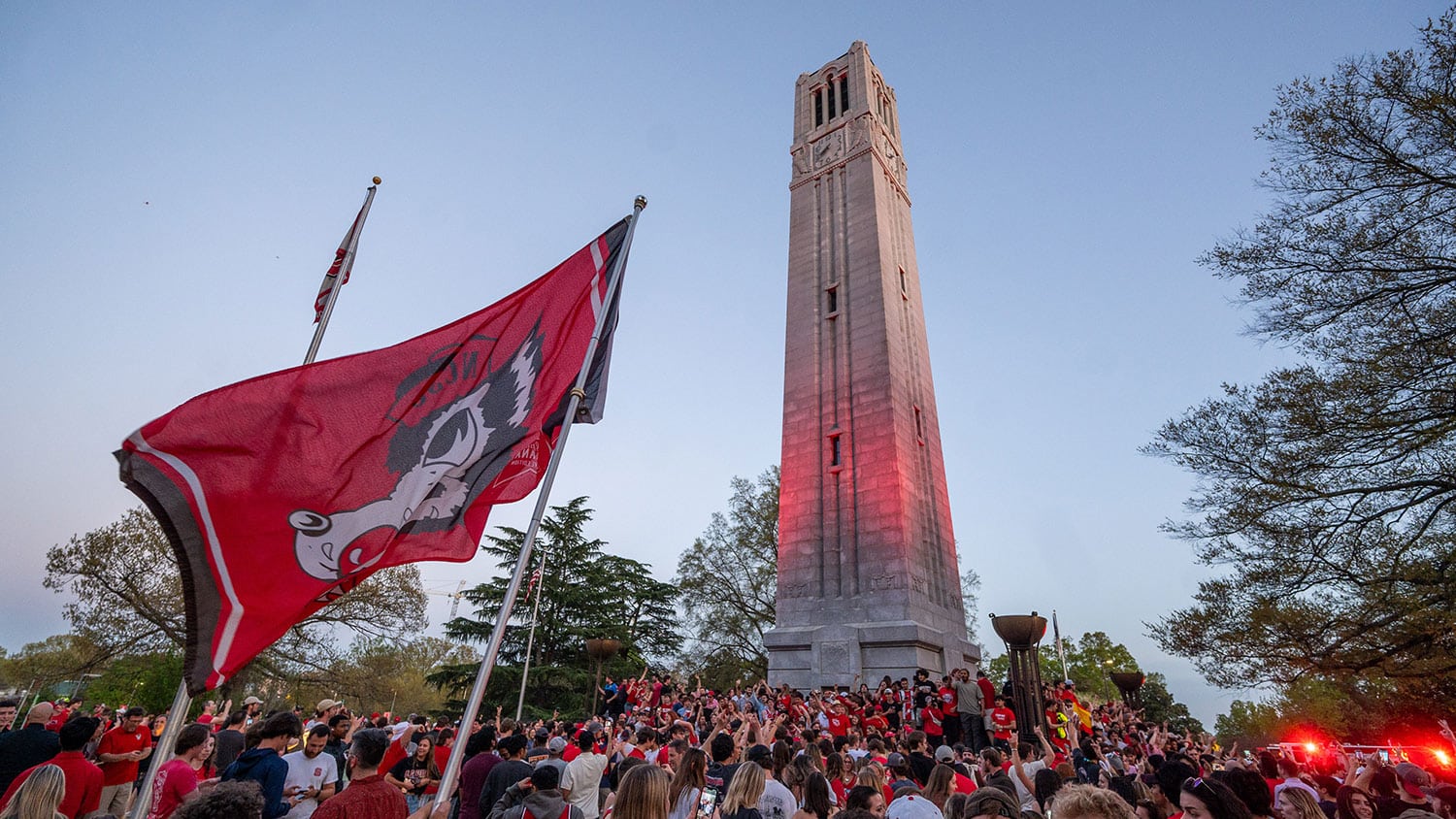Supporting Our Community
Mental Health First Aid training empowers everyone in the NC State community to recognize and address mental health crises.

When someone is suffering a physical health crisis, like an illness or injury, many people have at least some idea of what to do — clean and bandage the wound or administer CPR, for example. But how many people know how to recognize and address a mental health crisis?
In August, the University of North Carolina System announced a major new initiative to train 10,000 students, faculty, staff and campus police across the state in Mental Health First Aid (MHFA). The program, which has trained more than 2.5 million people in the United States, equips participants to recognize early warning signs of mental health challenges or substance abuse issues and offer initial help and support.
Just like with physical first aid, people trained in Mental Health First Aid have the opportunity to save a life.
NC State was already making plans to roll out its own MHFA training before the system announced its initiative. Now, with the system’s added support, the university will be able to help even more of the campus community understand how to better aid those around them.
“Just like with physical first aid, people trained in Mental Health First Aid have the opportunity to save a life,” said Shannon DuPree, director of wellness in Wellness and Recreation.
Breaking Down Barriers
Mental health challenges are nothing new on college campuses. But according to Monica Osburn, executive director of NC State’s Counseling Center, the COVID-19 pandemic has compounded many of the typical struggles students, faculty and staff face.
“The main differences we’re seeing now are in the severity and complexity of the challenges people are dealing with,” Osburn said. “People still come to us with typical things like anxiety or adjustment issues, but many of those are also complicated by other factors like substance use or domestic violence.”
The stigma that students perceive is a barrier to them receiving the care they need.
Zack Jenio, a Park Scholar and biological sciences major now working on a graduate degree in comparative biomedical sciences, has seen many of his fellow students struggling with the effects of isolation, sickness, uncertainty and other issues brought on by the pandemic. But they often see a stigma around asking for help.
“The stigma that students perceive is a barrier to them receiving the care they need,” Jenio said.
Knowing that many people dealing with mental health issues aren’t seeking professional help, the Wellness Advisory Committee decided to bring MHFA training to campus to equip community members to help each other more informally.
The training helps participants learn common signs and symptoms of mental illness and substance use, how to interact with a person in crisis, and how to connect that person to resources that can help.
“The goal of the training is for people who aren’t licensed professionals to be able to get more information about mental health and to become more familiar with resources that are available to point people in crisis toward,” DuPree said.


‘Everyone Has a Role’
The eight-hour MHFA training is available at no charge to anyone at NC State, and registration is now open for upcoming sessions. You don’t have to have any previous experience or training to enroll.
“A great thing about this training is that it can help people see that everyone has a role in supporting mental health,” Osburn said.
MHFA complements many of NC State’s other efforts to build community around health and wellness, including programs like the Mental Health Ambassadors, NC State CARES and Student Wellness Coaching.
For the past three years, Jenio has been a wellness coach through Wellness and Recreation’s ThriveWell program, helping students take a holistic view of their wellness and build healthier habits. He’s seen the benefits that program offers students and is looking forward to taking the MHFA training.
“I’m taking this training so that I can be a leader and advocate within the community regarding mental health and its importance for everyone,” Jenio said. “I’m excited to learn how to teach the information and facilitate the training so that I can work with student groups, organizations and departments around NC State to break down some of the stigma-related barriers and build a network of people who can support those around them.”

Looking Ahead
Sixteen faculty and staff completed the first training session at NC State in September, designed to prepare them to be trainers for future participants. In addition to the sessions that are open for registration, student organizations and departments can request training specifically for groups of their students or employees.
Those who participated in the first MHFA training are already thinking about how they can apply it in their interactions with the NC State community and others.
“I wanted to do the training so I could build awareness around what signs we need to look for and let people know it’s OK to step up and make mental health a normal topic of conversation,” said Nikki Kurdys, assistant director of county operations and human resources manager for NC State Cooperative Extension.
Extension employees work with the public all over the state on a regular basis. Kurdys hopes that as these employees participate in the training, its impact will spread beyond campus to the constituencies they interact with.
“Mental health is an issue that farmers don’t talk about much but often struggle with,” Kurdys said. “I hope equipping our employees to recognize the signs of struggles will allow them to help the public even more than they already do.”
“This training really opened my eyes to how even just the language you use can help create a safe environment,” said Michele Kurtz, an associate director in NC State’s Student Leadership and Engagement. She hopes to implement what she learned as she supports the department’s operations and works with students.
This training can help people see that everyone has a role in supporting mental health.
“It’s helped me feel more confident about what to do when I encounter students or staff who are in the midst of a mental health challenge and even helped me understand more about how to identify signs of emerging challenges,” she said.
Dan O’Brien, assistant director of employee relations in University Human Resources, said the training helped connect him with others who care about mental health issues. “I truly appreciate the passion I observed in my NC State colleagues during the training to be that difference and to advocate to reduce the stigma around mental health challenges,” he said.
He hopes to see that community grow as the training is offered to more people.
“The MHFA training left me feeling positioned to provide help, support and hope to individuals who are in need,” he said. “It’s definitely an opportunity to make a difference and positively impact our Wolfpack community and beyond.”
- Categories:


